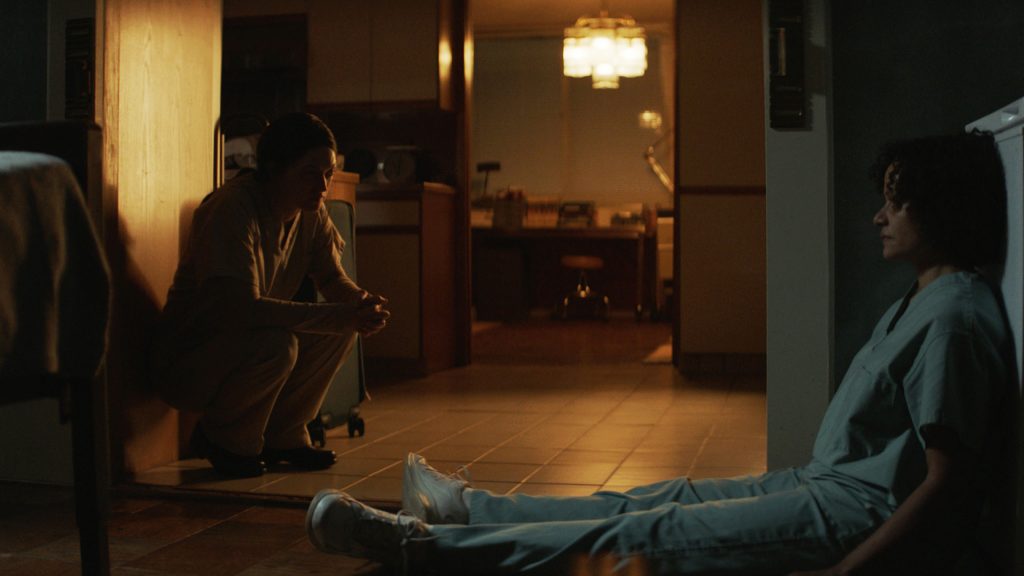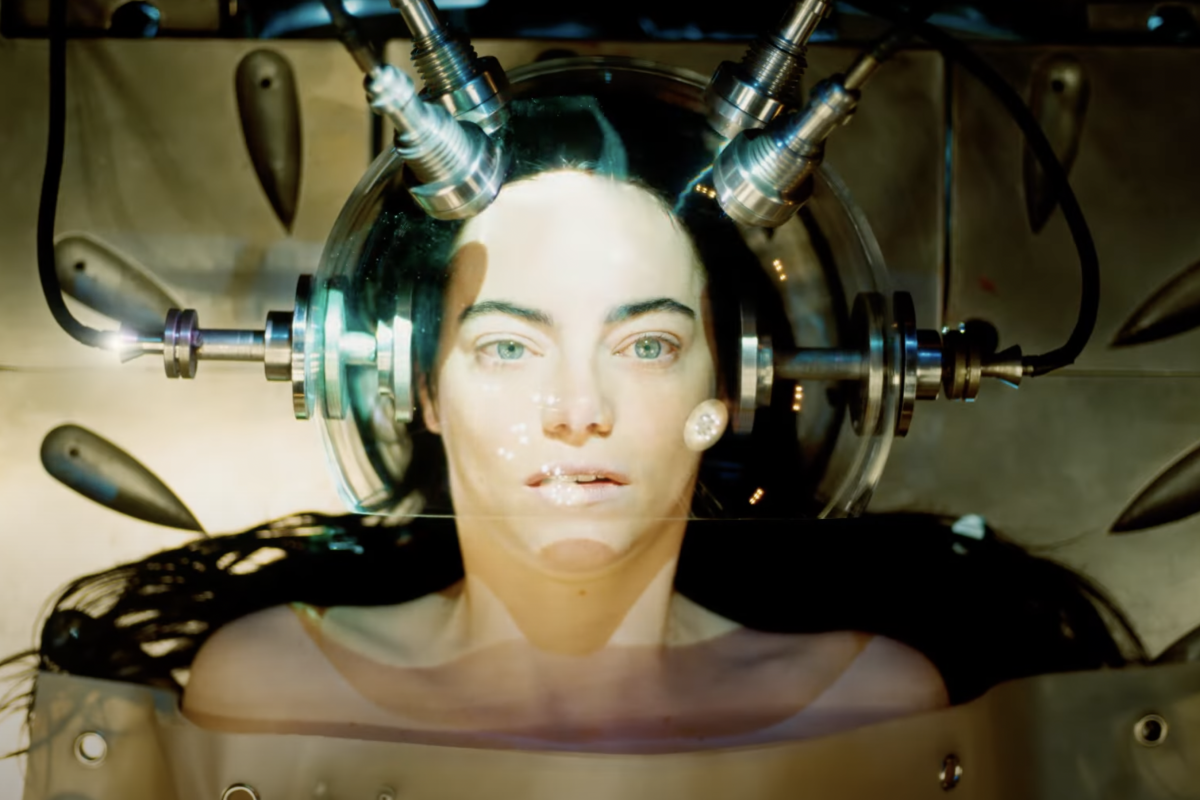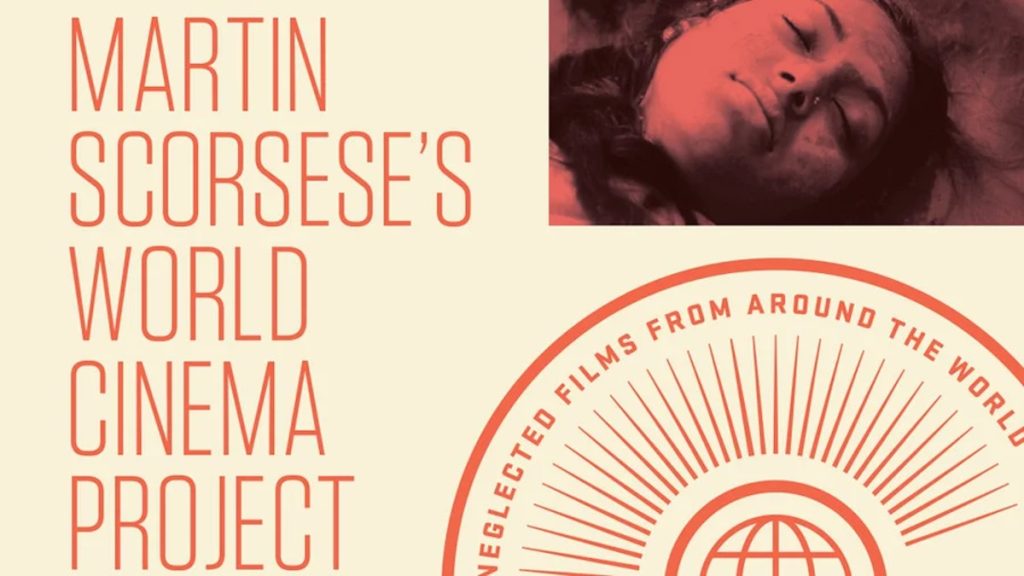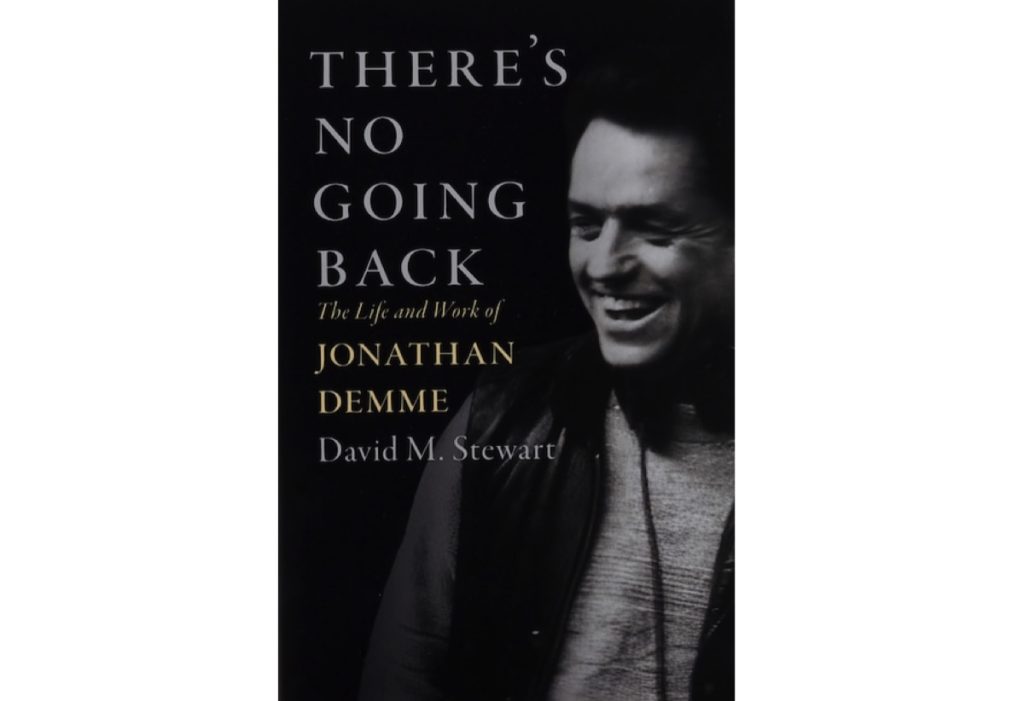Although it’s a classic work of literature by a feminist icon, Mary Shelley’s 1818 novel Frankenstein is almost never adapted from an explicitly feminist perspective. The title character is a towering man of science, and his creation is a monster who longs to be accepted as a man, and thus filmmakers for nearly a century have taken Frankenstein as a fantasy of male power, over life and death as well as over the story’s female characters. If filmmakers do place female characters at the center of an adaptation, it’s more likely to be for movies like Frankenhooker or Bikini Frankenstein, rather than any serious consideration of the story’s feminist perspective. Even Frankenstein movies that incorporate Shelley herself often portray her as a victim or a bystander, in contrast to the proactive male characters.
This year seems to have broken that trend with three boldly feminist takes on Shelley’s story, although none are direct adaptations of her novel. Yorgos Lanthimos’ Poor Things, Bomani J. Story’s The Angry Black Girl and Her Monster, and Laura Moss’ Birth/Rebirth all draw from recognizable elements of Frankenstein, some more blatantly than others. All of them feature powerful female characters either as Victor Frankenstein-style scientist figures or as the scientists’ monstrous creations — and sometimes as both. No mere victims or bystanders, these characters harness the power of life itself for their own purposes, not to serve the needs of men.
That’s not to say that men aren’t present in these movies, but they’re always secondary to the women in charge. In Poor Things, Willem Dafoe plays the closest that any of the three films has to a classic Victor Frankenstein character, as Victorian-era doctor and scientist Godwin Baxter. It’s surely no coincidence that he shares a name with Shelley’s father, William Godwin, which also allows him to unironically affect the nickname God. Godwin exhibits the typical scientific hubris associated with Victor Frankenstein, although his creation quickly overtakes him in both intellect and audacity.
He names her Bella Baxter (Emma Stone), and like most Frankenstein creations she’s constructed from discarded corpses, although Godwin takes a unique approach by transplanting the brain of an unborn child into the body of its mother, a pregnant woman who leapt to her death from a bridge. Thus Bella can approach life unsullied by societal expectations and prejudices, while also functioning as a “born sexy yesterday” object of desire for the men she encounters. She’s never subjugated by those men’s desires, though, and she doesn’t follow patriarchal rules because she hasn’t endured a lifetime of ingrained sexism.
Bella is the monster in Poor Things’ variation on Frankenstein, but she’s not the hulking, grunting version familiar from so many Frankenstein movies. Instead, she’s closer to Shelley’s original conception of the monster as a sensitive intellectual, articulate and literary, with a keener sense of human suffering than her creator. Bella evolves from an impulsive, petulant child in an adult’s body into an iconoclastic woman, taking control of both her sexuality and her livelihood, leaving the men in her life behind if they can’t keep up.
She discards the foppish rake Duncan Wedderburn (Mark Ruffalo), who encourages her sexual liberation until it threatens his masculine pride. She abandons her engagement to meek medical student Max McCandles (Ramy Youssef) so that she can travel the world. She even transcends the man she refers to as God, eventually taking on the role of his apprentice and successor. She starts out as Frankenstein’s creature, and ends up as Frankenstein himself.

In The Angry Black Girl and Her Monster, teenage Vicaria (Laya DeLeon Hayes) is already on her way to Victor Frankenstein status as the movie begins. She shares his hubris and his desperation, as well as a fully functioning laboratory for her experiments. Both Vicaria and Godwin have traditional-looking Frankenstein laboratories, complete with electrical currents to revive their subjects. While Godwin is driven more by the dispassionate scientific interest that Victor Frankenstein claims, Vicaria is driven equally by personal interest, hoping to revive her murdered brother Chris (Edem Atsu-Swanzy).
“Death is a disease,” she declares in the movie’s opening voiceover, and she expresses that opinion to the biology teacher at her upscale school, where she’s one of the only students of color. Like Victor Frankenstein, she’s ostracized for her unconventional ideas, although the vaguely racist teacher seems more put out that those ideas are being expressed by a young Black woman. Vicaria writes down her theories in a notebook she labels “The Modern Prometheus,” after the subtitle of Shelley’s novel, and there’s a reference to her family’s unmentioned German-sounding last name.
With Chris dead and her father Donald (Chad L. Coleman) strung out on drugs, Vicaria is that family’s last hope, and she bears the burden of setting things right. That means bringing Chris back to life, cobbling together parts from other corpses to properly rebuild his body and harnessing electrical current to revive him. Unlike the erudite Bella, Chris never quite masters the power of speech once he’s brought back to life, and he behaves more like the brutish monster from classic Frankenstein movies.
Vicaria says that the fear and anger of the local cops and drug dealers who confront him ultimately turn Chris into a rampaging monster, but he’s volatile and violent from the start. Like Victor Frankenstein, Vicaria runs away from her creation as soon as she witnesses what she’s unleashed, leaving him to fend for himself. She’s smart enough to have confidence that her methods will work, but too arrogant to think through the consequences. In that way, she becomes the equal of her male predecessors.

Birth/Rebirth’s Dr. Rose Casper (Marin Ireland) possesses similar arrogance, although she acquires a bit of humility over the course of the movie, in contrast to Bella and Vicaria, who only grow more self-assured. As the only one of these three movies created by a woman, director and co-writer Moss’ Birth/Rebirth focuses on the process of motherhood, in all its sometimes messy grotesquerie. Men are little more than a necessary obstacle for both Rose and nurse Celie (Judy Reyes), who find themselves in an unlikely collaboration on Rose’s lifelong project to resurrect the dead.
That’s because Rose’s subject is Celie’s late daughter Lila (A.J. Lister), a young girl who dies of bacterial meningitis and happens to have the exact right blood type and DNA markers to be a candidate for Rose’s experimental treatment. “For meningitis?” Celie asks. “No, for death,” Rose answers. Like Vicaria, she believes that death is a disease, one that she can cure via a serum derived from fetal cells. That’s where men come in, as Rose repeatedly impregnates herself and then self-administers abortions to acquire the necessary material. Recruiting a man in a bar to provide his seed, Rose is as sexually frank as Bella, but in pursuit of science, not pleasure.
Frankenstein could be viewed as a story of men’s womb envy, their need to find a surrogate for women’s ability to create life, and Birth/Rebirth removes that impediment. Rose is just as cold and clinical as many of her male counterparts, but Celie brings out her compassion, while Rose brings out Celie’s ruthlessness. Their increasingly elaborate techniques for concocting the serum that can revive Lila are also increasingly brutal, and Birth/Rebirth doesn’t pretend that being a mother is all cuddles and laughter. “Dignity and motherhood don’t always line up,” Celie tells a pregnant patient, something that only those who have experienced it can truly understand.
As the movie’s monster figure, Lila is closer to the shambling, feral Chris than to the sophisticated Bella, and these movies are generally more interested in the idea of women as Victor Frankenstein-like scientists than as horrific hybrid creatures. Vicaria’s young neighbor affectionately refers to her as a “mad scientist,” and in a heated argument, Celie calls Rose a “mad scientist princess bitch.” Bella would wear such a distinction as a badge of honor, although she mostly operates in more polite company. Shelley, too, would likely find these women to be kindred spirits, film characters who finally reflect her own independence and complexity.



